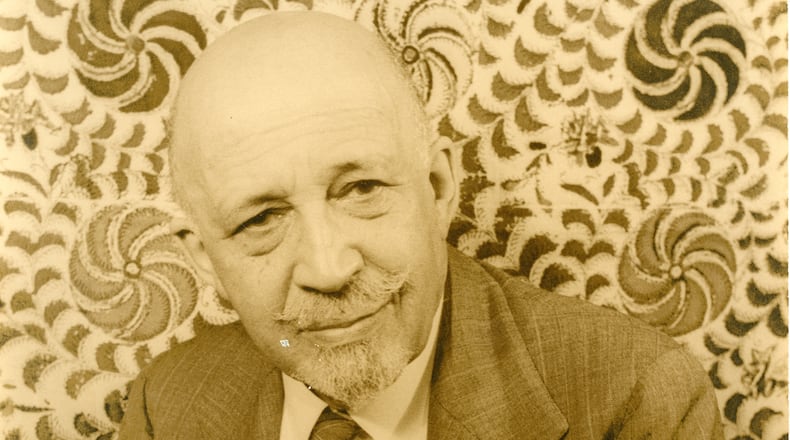Last week as I was scrolling through dates on the Georgia Historical Society’s terrific website “Today in Georgia History” I noticed there are many events that took place in February — Black History Month — that inform us about the arc of history of African Americans in Georgia. Some of the February dates allow us to reflect on the extraordinary accomplishments of Black Georgians. Others remind us of the fraught history of the Black experience in our state — the advances as well as the cruel setbacks for Georgia’s African Americans.
I was alternately moved, dismayed and proud of living here as I marched through the state calendar of February events and anniversaries.
It was on Feb. 12, 1733, that Georgia was founded as an abolitionist colony by the British social reformer and military leader James Oglethorpe. Oglethorpe’s charter prohibited slavery, the only one of the 13 colonies to do so. But it wouldn’t last long. In 1751, with Oglethorpe back in England and disengaged from the affairs of Georgia, the trustees of the colony bowed to pressure from owners of rice plantations and reversed the ban on chattel slavery, which lasted for more than 100 years until the Civil War finally brought it to an end.
On Feb. 5, 1945, Gov. Ellis Arnall abolished a Jim Crow law that established a poll tax designed to block Black Georgians from voting. The tax had been in place for more than 60 years, having been written into the state constitution of 1877 to counter the adoption of the 15th Amendment to the U.S. Constitution, which gave former slaves the right to vote. But in the years that followed Ellis’ order, we know that other barriers preventing Georgia Black citizens from voting continued in force.
Other February dates remind us of the continuing efforts of white Georgia leaders to keep segregation alive.
On Feb. 6, 1956, Gov. Marvin Griffin spoke before a joint session of the state Legislature. He urged lawmakers to take action to nullify the U.S. Supreme Court’s Brown v. Board of Education decision. The Legislature took up the charge and passed a measure declaring the state had the sovereign right to maintain segregated schools, despite the Supreme Court’s landmark ruling ordering U.S. schools to integrate. School desegregation didn’t begin in the state until 1961, and many Georgia schools remained segregated into the early 1970s.
On Feb. 13, 1956, the Legislature underscored its defiance of the Supreme Court school desegregation order by voting to change the Georgia flag, adopting a design that featured the Confederate battle emblem as the most prominent element of the new flag. It wasn’t until 2001 that Gov. Roy Barnes muscled through the Legislature a new flag that minimized the battle emblem. That highly charged and controversial accomplishment was a major factor in Barnes’ loss in his bid for reelection.
On Feb. 29, 1940, in Los Angeles, “Gone With the Wind,” which depicted a Georgia fighting gallantly to preserve its Southern heritage, was awarded eight Oscars, including for best picture. The movie was beloved by a wide range of audiences, but it also became a clarion call to those Southerners who embraced the false revisionist history of the Lost Cause. “Gone With the Wind” remains one of the most popular films ever made and continues to be shown frequently on television, even as communities across Georgia have removed monuments and other tributes to the Lost Cause from public spaces.
And then there are the February dates that allow us to celebrate the individual achievements of Black Georgians.
On Feb. 4 we honor the memory of Clinch County’s Ossie Davis, who had a celebrated career as an actor, playwright and civil rights leader. Davis was a master of ceremonies at the March on Washington and was there to hear the Rev. Martin Luther King Jr. proclaim “I have a dream.” Davis and his wife, the equally acclaimed actor Ruby Dee, formed a 50-year creative partnership that endures as one of the great love stories of American theater and film.
Feb. 9 is the birthday of celebrated author Alice Walker, who is best known for her novel “The Color Purple.” In 1982, Walker became the first African American woman to win the Pulitzer Prize in fiction for her harrowing portrait of four decades in the life of Celie, who faced bigotry and abuse in rural Georgia in the early 1900s.
Jim Brown, who was born on St. Simons Island on Feb. 17, 1936, went on to become one of the greatest football players of all time. Another Georgia athlete, Tiger Flowers of Camilla, became the first Black boxer to win the middleweight championship of the world on Feb. 26, 1936.
And then there are the birthdays of two towering figures of civil rights.
W.E.B. Du Bois, one of the most influential Black intellectuals of the 20th century, was born on Feb. 23, 1868. He came to Atlanta to teach at Atlanta University starting in 1897 and was a powerful voice for giving African Americans equal rights and a bigger voice in political affairs. Appalled by the Atlanta race riots of 1906, Du Bois became one of the founders of the NAACP three years later.
And finally, we come to one of the great heroes of contemporary Georgia and American history. John Lewis was born on Feb. 21, 1940. His story is well known, and given his accomplishments in fighting for civil rights and equal justice for all, an entire month could be dedicated simply to his life and work.
But I’ll gladly remember John Lewis’ birthday as part of the journey of African Americans in Georgia, which we see revealed in events and occasions that by sheer coincidence took place in February, the month we honor Black history.
About the Author
Keep Reading
The Latest
Featured




